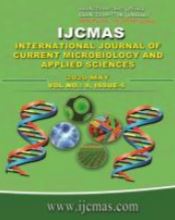


 National Academy of Agricultural Sciences (NAAS)
National Academy of Agricultural Sciences (NAAS)

|
PRINT ISSN : 2319-7692
Online ISSN : 2319-7706 Issues : 12 per year Publisher : Excellent Publishers Email : editorijcmas@gmail.com / submit@ijcmas.com Editor-in-chief: Dr.M.Prakash Index Copernicus ICV 2018: 95.39 NAAS RATING 2020: 5.38 |
This study was conducted to analyse the status of Makhana processing and its value chain financing in Bihar. Findings of the study revealed that almost 100 per cent of Makhana is processed manually and the adoption of Makhana processing machines was totally absent. The net profit earned by processing of each quintal of raw Makhana seeds is very less in comparison to the share in consumers’ price.Contrary to the Makhana production; the women participation in Makhana processing was much significant. Women execute 74.45 per cent of roasting activity and 62.36 per cent of grading activity. Here child labour also contributed 21.54 and 13.08 per cent in grading and first roasting, respectively. In case of Makhana processing, the major constraints were lack of affordable and efficient processing machines dependence on private money lenders with high interest rates for procurement of raw material. Analysis of Makhana value chain financing practice revealed that private money lenders were major financers of value chain who financed 85 per cent of makhana processors. Based on this study, value chain financing to the Makhana processors can be characterized by small loan amounts (average loan size of Rs 257083 to 268333), high interest rates (ranging between 40 to 45 % per annum) and one time payments.
 |
 |
 |
 |
 |